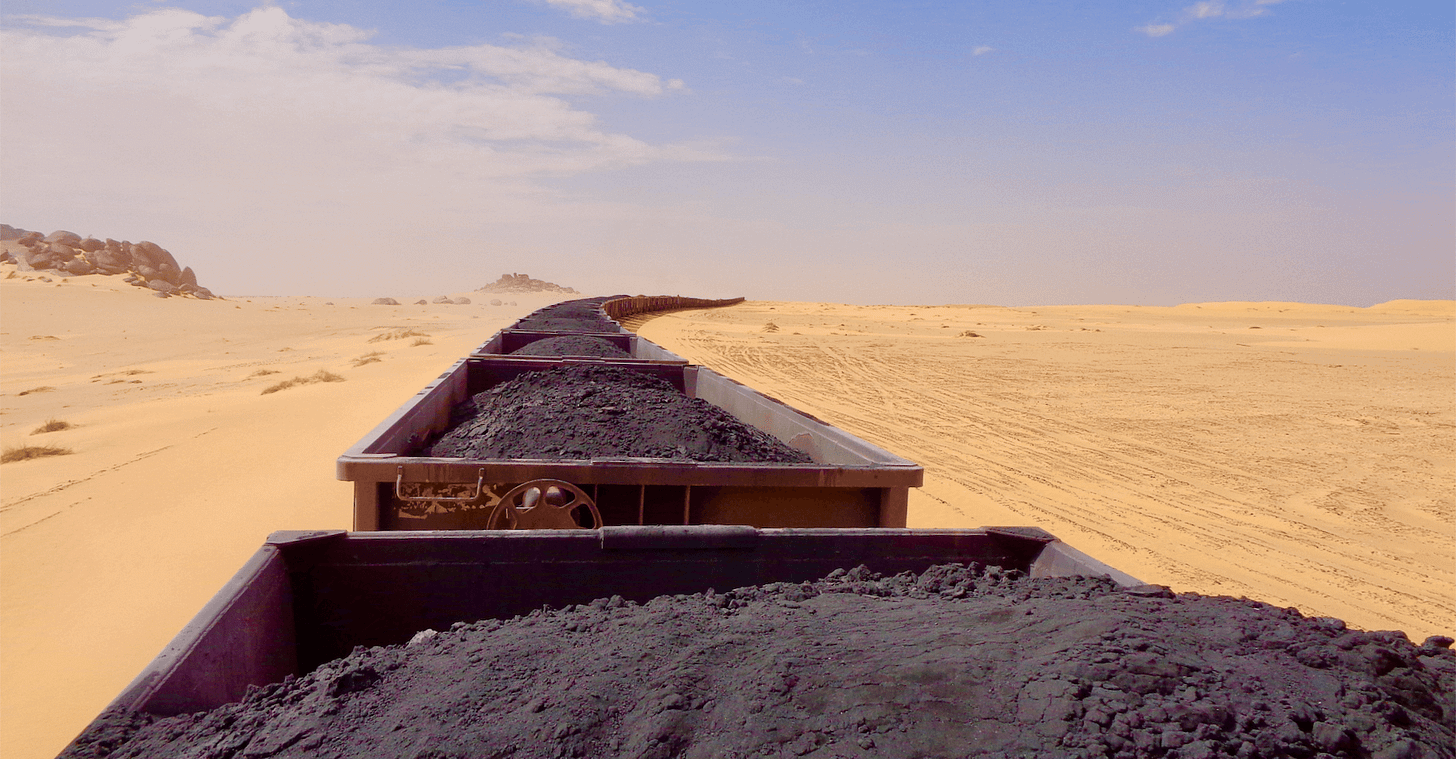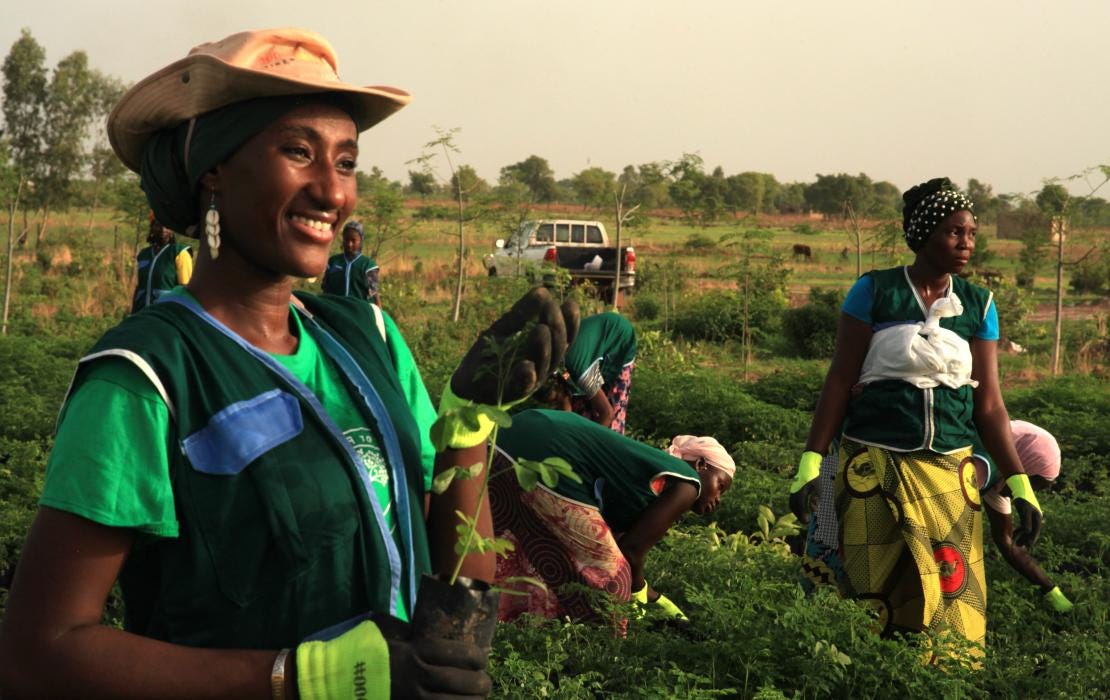Green hydrogen, EV-Factory, local vaccine production, and more
Industry and Investment News
Hi all,
it’s time again for our investment and industry news roundup covering Sub-Saharan Africa.
The highlights this week:
Mauritania's Green Hydrogen Initiative: Mauritania is partnering with CWP Global to use green hydrogen for decarbonizing iron production, aiming to produce hot briquetted iron and significantly reduce CO2 emissions, positioning the country as a key player in the green steel industry.
Ethiopia's Largest EV Factory: Ethiopia has inaugurated its largest electric vehicle factory in Debre Berhan with a $52 million investment by Belayneh Kinde, aiming to produce 1,000 electric vehicles annually, enhancing the country's move towards sustainable transportation.
Serum Institute of India's Expansion in Africa: The Serum Institute of India is planning to set up its first manufacturing plant in Africa, with potential locations in South Africa and Rwanda, to bolster local vaccine production and reduce dependency on foreign suppliers, particularly highlighted by the COVID-19 pandemic.
Keep reading to learn more!

😍 Investment news we love:
Green financing
Senegal is launching a national fund to promote the green economy, focusing on agriculture, waste management, and biodiversity to reduce environmental impact.
The African Development Fund (ADF) has approved a $42.86 million grant to support Ethiopian agricultural projects led by SMEs, particularly those headed by young people and women.
The Climate Action Africa Forum (CAAF24) in Lagos highlighted Africa's potential for green transformation and announced several key initiatives, including the launch of the $20 million Pan African Climate Action Fund.
Venture Capital
Eco2rybe Africa Platform has launched the $250 billion Art2Green Africa Initiative to monetize the creative arts, crafts, music, and traditions of over 2,500 African tribes.
European early-stage VC firm Breega has launched a $75 million Africa-focused fund to invest in early-stage startups across Africa, in sectors such as agri-tech, ed-tech, e-health, fintech, and logistics.
What's worth knowing in:
🌳 Ecosystems
Mali: Rokiatou Traore, a green entrepreneur in Mali, is combating desertification by encouraging women and young people to plant trees to protect livelihoods.

💡 Energy and infrastructure
SolarSaver has installed solar PV systems at 150 Engen fuel stations in Botswana, Namibia, and South Africa, generating nearly 6.59 MW and reducing grid dependence and CO2 emissions.
DRC: The MIGA is providing a $50.3 million guarantee to Congo Energy Solutions (Nuru) for installing hybrid solar-powered metropolitan electricity grids to electrify 28,000 households and businesses.
Guinea-Bissau: The World Bank is supporting Guinea-Bissau's first solar power plants to decarbonize electricity production and enhance electrification, including hybrid solar mini-grids to power 1,200 households and businesses.
Mauritania: Mauritania, in partnership with Australian energy company CWP Global, aims to decarbonize its iron production by using green hydrogen to produce hot briquetted iron.
🚕 Mobility and transport systems
Ethiopia: Ethiopia has opened its largest EV factory in Debre Berhan, with a $52 million investment by entrepreneur Belayneh Kinde, aiming to produce 1,000 EVs annually.
Ivory Coast: Bouaké has inaugurated its first EV charging point, aligning with the country's push towards e-mobility and following the arrival of BYD e-cars and is part of a broader strategy to improve air quality and promote green transportation.
Rwanda: Ampersand signed an agreement with Chinese EV company BYD. Ampersand will buy batteries from BYD to build approximately 40,000 electric motorcycles by the end of 2026.
🏭 Industrialisation
Angola: A new clothing factory has opened in Viana, Luanda, Angola, with the capacity to produce between 300,000 and 900,000 garments per month, with plans to potentially reach 15,000 employees by 2026.
The Serum Institute of India (SII), the world's largest vaccine producer, is planning to establish its first manufacturing plant in Africa, with potential locations including South Africa and Rwanda.
Businesses from the U.S., Japan, and Europe are racing to invest in Central Africa's Copperbelt region, which spans Zambia and the DRC, to tap into its rich reserves of copper and cobalt essential for EV batteries. Utilizing advanced technologies like AI for locating deposits, these companies aim to compete with China's dominant presence in the region's mineral development.
Enjoying out content?
Don’t keep it for yourself and share!
Subscribe to not miss future updates!
Feedback or thoughts?
Please let us know! Just reply to this e-mail. We’re happy to hear from you!
Thanks for reading,
Carolin

